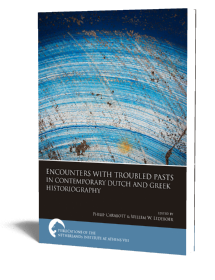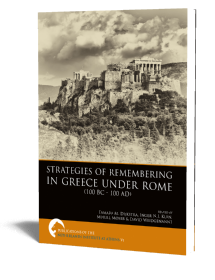Abstract:
This book includes papers on Nature and Human Nature focusing on Ancient Greek Philosophy and its Reception. The book encompasses papers of academics who participated in the homonymous Symposium which was held in October 2023 at the Netherlands Institute at Athens.
All papers deal with philosophers, philosophical works and treatises which belong to the broad subject of the inquiry into nature, including human nature.
A large period in the History of Philosophy is covered, beginning from Classical Antiquity (Plato and the Socratics [Phaedo]), running through Late Antiquity (Middle Platonism [Atticus], Galen, Alexander of Aphrodisias), and concluding with the Latin Patristic tradition, Late Neoplatonism, and Byzantium (Augustine, Simplicius, Philoponus, Maximus the Confessor). The authors systematically investigate crucial issues that permeated the whole of ancient Greek philosophical thought and tradition; human nature and physiognomy in Plato and the Socratics, the parallel between the ordering activity of the world-soul (which is also called “nature”) and that of the individual soul in Middle Platonism, the relation between individual and universal nature in Galen, the parallel in the Patristic scholarship between Augustine’s and Maximus’ doctrines of will and their differences, Alexander of Aphrodisias’ view of the Peripatetic theory regarding the relation between the universe and the First Cause, Alexander of Aphrodisias’ view of nature and the causal roles he assigned to nature and the Prime mover, nature and soul as principles of motion and change in Aristotle’s Physica and De caelo according to the theories of Alexander of Aphrodisias, Simplicius and Philoponus.
The book is intended for specialists, students and anyone interested in Ancient Greek Philosophy.
Contents
Introduction
Melina G. Mouzala
Phaedo of Elis, Physiognomy, and Human Nature in Plato’s Phaedo
Claudia Marsico
Ordering the Soul: ethical and cosmological perspectives on Atticus’ doctrine of providence
Alexandra Michalewski
Galen on Human Nature: Individual and Cosmos
Teun Tieleman
Nature and Will in Maximus the Confessor and Augustine
Fr. Nikolaos Loudovikos
Alexander of Aphrodisias on the first cause, divine power, the city and the household
Frans de Haas
Nature in Alexander of Aphrodisias’ Commentary on Book II of the Physics
István Bodnár
Nature and Soul as Principles of Motion and Change: Simplicius, Alexander of Aphrodisias, and Philoponus on Aristotle’s Physics II. 1-3
Melina G. Mouzala

Dr.
Melina G. Mouzala
Melina G. Mouzala is an Associate Professor at the Department of Philosophy of the University of Patras, Greece (Ancient Philosophy; her research interests include the Platonic and Aristotelian traditions as well as Ancient and Byzantine commentaries on Aristotle).
read more











